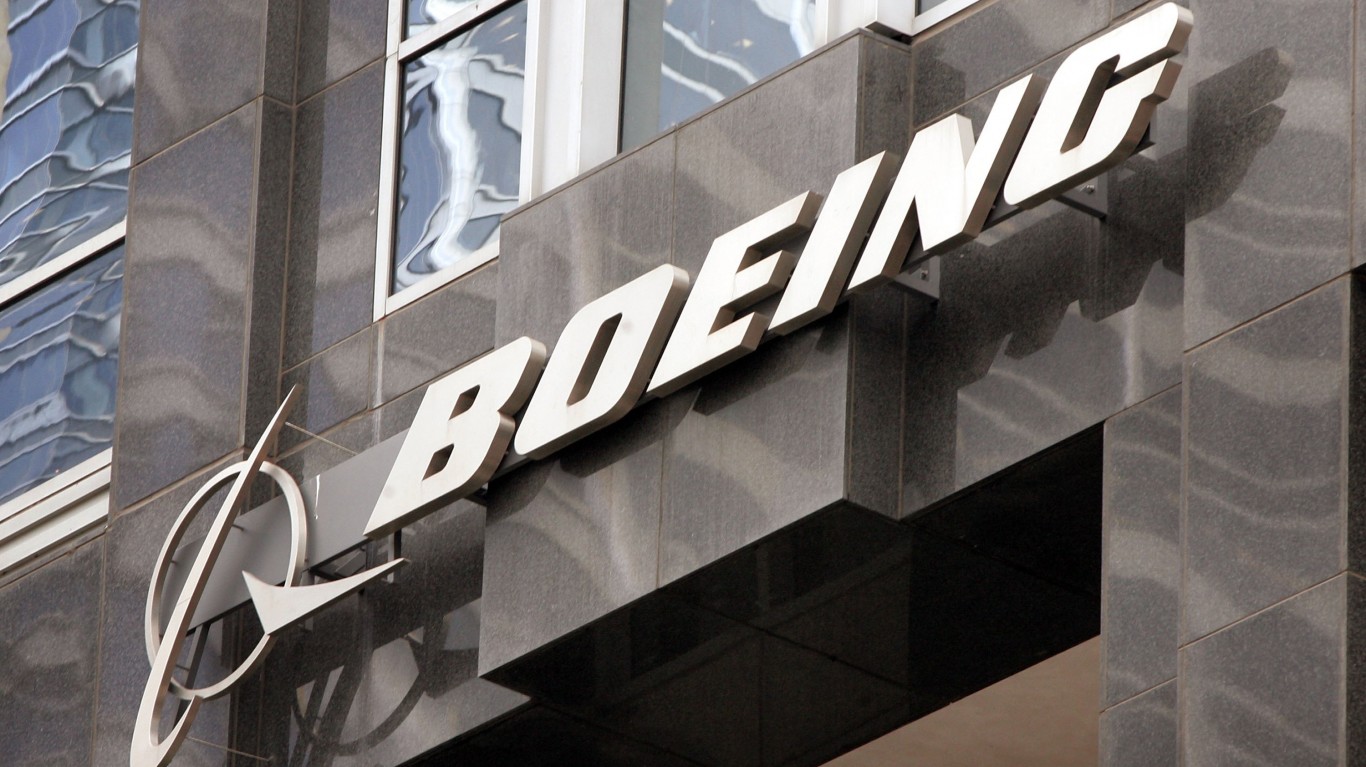
Boeing Co. (NYSE: BA) reported fourth-quarter and full-year 2019 results before markets opened Wednesday morning. For the quarter, the aerospace company posted an adjusted diluted net loss per share (EPS) of $2.33 on revenues of $17.9 billion. In the same period a year ago, the company reported EPS of $5.48 per share on revenues of $28.34 billion. Fourth-quarter results compare to consensus estimates for earnings per share (EPS) of $1.47 and $21.67 billion in revenues.
For the full year, Boeing reported a net loss per share of $3.41 and revenues of $76.56 billion, compared with year-ago EPS of $16.01 and revenues of $101.13 billion. Analysts were looking for EPS of $0.57 and revenues of $80.04 billion.
Operating cash flow, long the metric that Boeing has wanted investors to focus on, was a negative $2.2 billion in the quarter and a negative $2.45 billion for the year. In the fourth quarter of 2018, cash flow totaled $2.95 billion and full-year cash flow came in at $15.32 billion.
Since Boeing’s 737 Max was grounded in March of last year, the company has delivered none of the planes, and deliveries of all the company’s commercial jets totaled just 79 for the fourth quarter and 380 for the year, compared to fourth-quarter 2018 deliveries of 238 new aircraft and full-year deliveries of 806 commercial planes.
New CEO David Calhoun commented:
We recognize we have a lot of work to do. We are focused on returning the 737 MAX to service safely and restoring the long-standing trust that the Boeing brand represents with the flying public. We are committed to transparency and excellence in everything we do. Safety will underwrite every decision, every action and every step we take as we move forward. Fortunately, the strength of our overall Boeing portfolio of businesses provides the financial liquidity to follow a thorough and disciplined recovery process.
Boeing’s stock price rose in Wednesday’s premarket despite results that were much worse than analysts expected. Primarily that’s due to $25.4 billion in new borrowing during 2019 and net cash on hand from financing of $5.74 billion, bringing total cash and equivalents to $9.5 billion, excluding restricted cash.
That means that Boeing likely will continue paying dividends until the company can get the 737 Max back in the air again and untangle the delivery nightmare it still faces. All those undelivered airplanes added about $14 billion to Boeing’s inventory in 2019, and as those are shipped to customers the company’s finances will begin to sort themselves out.
In Boeing’s case, near-term profits and even revenues don’t matter. What was, a year ago the nation’s premier manufacturing firm is expected to recover because it is simply too big and too powerful to collapse. Once that recovery takes hold, investors expect to see the stock price soar again, along with a dividend hike.
Shares traded up about 2.8% just after Wednesday’s open, at $325.40 in a 52-week range of $302.72 to $446.01. The consensus 12-month price target on the stock is $339.85, and the dividend yield is 2.6%.
Find a Qualified Financial Advisor (Sponsor)
Finding a qualified financial advisor doesn’t have to be hard. SmartAsset’s free tool matches you with up to 3 fiduciary financial advisors in your area in 5 minutes. Each advisor has been vetted by SmartAsset and is held to a fiduciary standard to act in your best interests. If you’re ready to be matched with local advisors that can help you achieve your financial goals, get started now.
Thank you for reading! Have some feedback for us?
Contact the 24/7 Wall St. editorial team.
